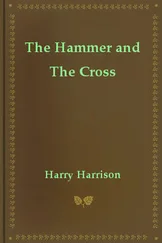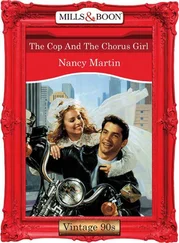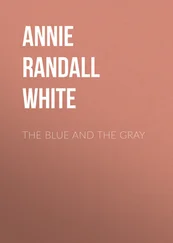Gilbert Chesterton - The Ball and the Cross
Здесь есть возможность читать онлайн «Gilbert Chesterton - The Ball and the Cross» весь текст электронной книги совершенно бесплатно (целиком полную версию без сокращений). В некоторых случаях можно слушать аудио, скачать через торрент в формате fb2 и присутствует краткое содержание. Жанр: Классическая проза, на английском языке. Описание произведения, (предисловие) а так же отзывы посетителей доступны на портале библиотеки ЛибКат.
- Название:The Ball and the Cross
- Автор:
- Жанр:
- Год:неизвестен
- ISBN:нет данных
- Рейтинг книги:5 / 5. Голосов: 1
-
Избранное:Добавить в избранное
- Отзывы:
-
Ваша оценка:
- 100
- 1
- 2
- 3
- 4
- 5
The Ball and the Cross: краткое содержание, описание и аннотация
Предлагаем к чтению аннотацию, описание, краткое содержание или предисловие (зависит от того, что написал сам автор книги «The Ball and the Cross»). Если вы не нашли необходимую информацию о книге — напишите в комментариях, мы постараемся отыскать её.
The Ball and the Cross — читать онлайн бесплатно полную книгу (весь текст) целиком
Ниже представлен текст книги, разбитый по страницам. Система сохранения места последней прочитанной страницы, позволяет с удобством читать онлайн бесплатно книгу «The Ball and the Cross», без необходимости каждый раз заново искать на чём Вы остановились. Поставьте закладку, и сможете в любой момент перейти на страницу, на которой закончили чтение.
Интервал:
Закладка:
In the confused colour and music of his new paradise, Michael heard only in a faint and distant fashion some remarks that this beautiful solid man seemed to be making to him; remarks about something or other being after hours and against orders. He also seemed to be asking how Michael “got up” there. This beautiful man evidently felt as Michael did that the earth was a star and was set in heaven.
At length Michael sated himself with the mere sensual music of the voice of the man in buttons. He began to listen to what he said, and even to make some attempt at answering a question which appeared to have been put several times and was now put with some excess of emphasis. Michael realized that the image of God in nickel buttons was asking him how he had come there. He said that he had come in Lucifer’s ship. On his giving this answer the demeanour of the image of God underwent a remarkable change. From addressing Michael gruffly, as if he were a malefactor, he began suddenly to speak to him with a sort of eager and feverish amiability as if he were a child. He seemed particularly anxious to coax him away from the balustrade. He led him by the arm towards a door leading into the building itself, soothing him all the time. He gave what even Michael (slight as was his knowledge of the world) felt to be an improbable account of the sumptuous pleasures and varied advantages awaiting him downstairs. Michael followed him, however, if only out of politeness, down an apparently interminable spiral of staircase. At one point a door opened. Michael stepped through it, and the unaccountable man in buttons leapt after him and pinioned him where he stood. But he only wished to stand; to stand and stare. He had stepped as it were into another infinity, out under the dome of another heaven. But this was a dome of heaven made by man. The gold and green and crimson of its sunset were not in the shapeless clouds but in shapes of cherubim and seraphim, awful human shapes with a passionate plumage. Its stars were not above but far below, like fallen stars still in unbroken constellations; the dome itself was full of darkness. And far below, lower even than the lights, could be seen creeping or motionless, great black masses of men. The tongue of a terrible organ seemed to shake the very air in the whole void; and through it there came up to Michael the sound of a tongue more terrible; the dreadful everlasting voice of man, calling to his gods from the beginning to the end of the world. Michael felt almost as if he were a god, and all the voices were hurled at him.
“No, the pretty things aren’t here,” said the demi-god in buttons, caressingly. “The pretty things are downstairs. You come along with me. There’s something that will surprise you downstairs; something you want very much to see.”
Evidently the man in buttons did not feel like a god, so Michael made no attempt to explain his feelings to him, but followed him meekly enough down the trail of the serpentine staircase. He had no notion where or at what level he was. He was still full of the cold splendour of space, and of what a French writer has brilliantly named the “vertigo of the infinite,” when another door opened, and with a shock indescribable he found himself on the familiar level, in a street full of faces, with the houses and even the lamp-posts above his head. He felt suddenly happy and suddenly indescribably small. He fancied he had been changed into a child again; his eyes sought the pavement seriously as children’s do, as if it were a thing with which something satisfactory could be done. He felt the full warmth of that pleasure from which the proud shut themselves out; the pleasure which not only goes with humiliation, but which almost is humiliation. Men who have escaped death by a hair have it, and men whose love is returned by a woman unexpectedly, and men whose sins are forgiven them. Everything his eye fell on it feasted on, not aesthetically, but with a plain, jolly appetite as of a boy eating buns. He relished the squareness of the houses; he liked their clean angles as if he had just cut them with a knife. The lit squares of the shop windows excited him as the young are excited by the lit stage of some promising pantomime. He happened to see in one shop which projected with a bulging bravery on to the pavement some square tins of potted meat, and it seemed like a hint of a hundred hilarious high teas in a hundred streets of the world. He was, perhaps, the happiest of all the children of men. For in that unendurable instant when he hung, half slipping, to the ball of St. Paul’s, the whole universe had been destroyed and re-created.
Suddenly through all the din of the dark streets came a crash of glass. With that mysterious suddenness of the Cockney mob, a rush was made in the right direction, a dingy office, next to the shop of the potted meat. The pane of glass was lying in splinters about the pavement. And the police already had their hands on a very tall young man, with dark, lank hair and dark, dazed eyes, with a grey plaid over his shoulder, who had just smashed the shop window with a single blow of his stick.
“I’d do it again,” said the young man, with a furious white face. “Anybody would have done it. Did you see what it said? I swear I’d do it again.” Then his eyes encountered the monkish habit of Michael, and he pulled off his grey tam-o’-shanter with the gesture of a Catholic.
“Father, did you see what they said?” he cried, trembling. “Did you see what they dared to say? I didn’t understand it at first. I read it half through before I broke the window.”
Michael felt he knew not how. The whole peace of the world was pent up painfully in his heart. The new and childlike world which he had seen so suddenly, men had not seen at all. Here they were still at their old bewildering, pardonable, useless quarrels, with so much to be said on both sides, and so little that need be said at all. A fierce inspiration fell on him suddenly; he would strike them where they stood with the love of God. They should not move till they saw their own sweet and startling existence. They should not go from that place till they went home embracing like brothers and shouting like men delivered. From the Cross from which he had fallen fell the shadow of its fantastic mercy; and the first three words he spoke in a voice like a silver trumpet, held men as still as stones. Perhaps if he had spoken there for an hour in his illumination he might have founded a religion on Ludgate Hill. But the heavy hand of his guide fell suddenly on his shoulder.
“This poor fellow is dotty,” he said good-humouredly to the crowd. “I found him wandering in the Cathedral. Says he came in a flying ship. Is there a constable to spare to take care of him?”
There was a constable to spare. Two other constables attended to the tall young man in grey; a fourth concerned himself with the owner of the shop, who showed some tendency to be turbulent. They took the tall young man away to a magistrate, whither we shall follow him in an ensuing chapter. And they took the happiest man in the world away to an asylum.
II. THE RELIGION OF THE STIPENDIARY MAGISTRATE
The editorial office of The Atheist had for some years past become less and less prominently interesting as a feature of Ludgate Hill. The paper was unsuited to the atmosphere. It showed an interest in the Bible unknown in the district, and a knowledge of that volume to which nobody else on Ludgate Hill could make any conspicuous claim. It was in vain that the editor of The Atheist filled his front window with fierce and final demands as to what Noah in the Ark did with the neck of the giraffe. It was in vain that he asked violently, as for the last time, how the statement “God is Spirit” could be reconciled with the statement “The earth is His footstool.” It was in vain that he cried with an accusing energy that the Bishop of London was paid L12,000 a year for pretending to believe that the whale swallowed Jonah. It was in vain that he hung in conspicuous places the most thrilling scientific calculations about the width of the throat of a whale. Was it nothing to them all they that passed by? Did his sudden and splendid and truly sincere indignation never stir any of the people pouring down Ludgate Hill? Never. The little man who edited The Atheist would rush from his shop on starlit evenings and shake his fist at St. Paul’s in the passion of his holy war upon the holy place. He might have spared his emotion. The cross at the top of St. Paul’s and The Atheist shop at the foot of it were alike remote from the world. The shop and the Cross were equally uplifted and alone in the empty heavens.
Читать дальшеИнтервал:
Закладка:
Похожие книги на «The Ball and the Cross»
Представляем Вашему вниманию похожие книги на «The Ball and the Cross» списком для выбора. Мы отобрали схожую по названию и смыслу литературу в надежде предоставить читателям больше вариантов отыскать новые, интересные, ещё непрочитанные произведения.
Обсуждение, отзывы о книге «The Ball and the Cross» и просто собственные мнения читателей. Оставьте ваши комментарии, напишите, что Вы думаете о произведении, его смысле или главных героях. Укажите что конкретно понравилось, а что нет, и почему Вы так считаете.









